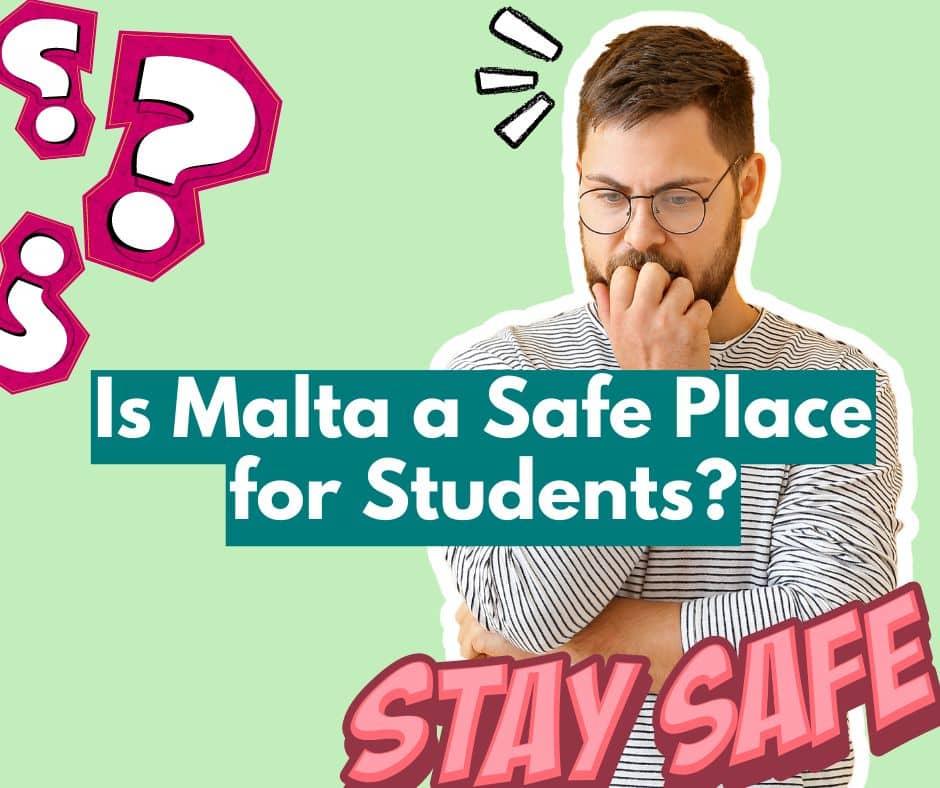

Malta is a small, beautiful island in the Mediterranean Sea. It is a popular place for international students to study English. Many students from around the world choose Malta because of its sunny weather, friendly people, and great schools. But one important question that students often ask is: Is Malta safe?
The short answer is yes. Malta is considered one of the safest countries in Europe, especially for students who come to study English for a short period. Let us take a closer look at why Malta is safe and what students should know.
Crime Rate in Malta
For students, especially those staying for a short time, it is important to follow basic safety tips. For example, keep your belongings safe, avoid walking alone late at night, and always be aware of your surroundings. But overall, students can feel safe in Malta, whether they are in busy tourist areas or quieter towns.
Malta has a very low crime rate compared with other European countries. According to statistics from Eurostat, Malta’s crime levels are much lower than the average in Europe. The most common type of crime in Malta is petty theft, like pickpocketing. However, violent crime is very rare on the island.
Friendly and Welcoming Environment
Malta is known for being a very welcoming country. The Maltese people are friendly and open, and they are used to having international visitors. This is because Malta is a popular tourist destination, and many people come to the island to learn English.
Many students report that they feel at home in Malta because of the warm hospitality. People in Malta speak English very well, and there are many activities and events for international students to enjoy during their stay. The locals are helpful, and students can ask for directions or assistance if needed.
Safety for International Students
Malta is also a member of the European Union, which means the country follows strict regulations and laws to protect everyone, including students. The schools and language institutes in Malta are well-regulated and provide a safe environment for learning. The government works closely with schools to make sure students are safe and that their rights are protected.
Some schools even offer extra services, such as airport transfers and student accommodation. This makes it easier for students to settle in and feel safe when they arrive in Malta. For students who prefer to live with a host family, this is also a great way to experience local culture while being in a safe and secure environment.
Health and Emergency Services in Malta
Malta has a good healthcare system, and there are many clinics and hospitals available if students need medical attention. The country also has an emergency number (112) that students can call for police, fire, or medical emergencies. For students from European countries (the EU member states, Iceland, Liechtenstein, Norway, and Switzerland, the European Health Insurance Card (EHIC) provides access to medical services in Malta.
Even though most students do not face health or safety issues during their stay, it is always a good idea to have travel insurance. This will cover any unexpected medical expenses or other emergencies.
Transportation Safety
Malta has a reliable and safe public transportation system, including buses and taxis. The buses are modern and reach all parts of the island. Most students use public transportation to get around, and it is considered very safe. For students who want to travel during their free time, Malta’s small size makes it easy to explore without any trouble.
Conclusion
In conclusion, Malta is a safe and welcoming place for students who want to study English. The low crime rate, friendly locals, and strong regulations make it an excellent choice for students who want to focus on their studies and enjoy their time abroad. By following some basic safety tips and being aware of their surroundings, students can have a safe and enjoyable experience in Malta.
If you are thinking about studying English in Malta, you can feel confident knowing that you are going to a safe and friendly destination.
For more information about our services, contact the inlingua Malta team at info@inlinguamalta.com














